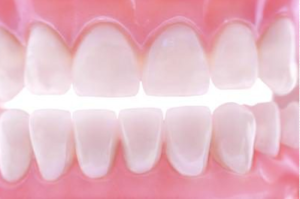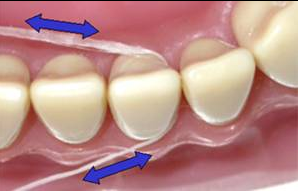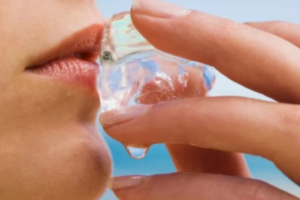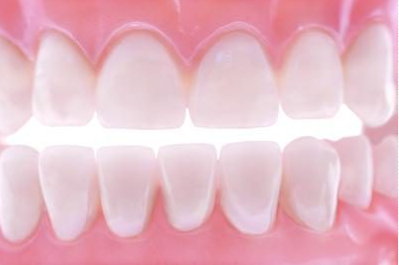There are so many reasons for itchy gums. Ranging from allergic reaction, after tooth extraction and eating. This post attempts to give the possible causes why your gums can itch, how to relief, cure and home remedies to prevent itching in the gums.

Gums can be described as soft tissues that surround teeth. They provide a seal around each tooth. Having healthy gum is essential in protecting the teeth. Itching is a symptom that something is not right. It could be bacterial infection that has built up between gums and teeth.
Treating itchy gums is easy. You can use simple home remedies to get relief. In brief the home remedies include:
- Gargle your mouth with salt water
- Use antibacterial mouthwash
- A good oral and dental hygiene can prevent most problems associated with gums and mouth.
Medications such as antihistamines should also help you get relief from itchy gums.
There are other cases where itching could be a sign of a serious underlying health condition such as gum disease, you should visit your dentist if these symptoms become unbearable.
The symptoms of itchy gums
The causes of itchy gums are numerous therefore; symptoms can help you identify the underlying cause. Here are the symptoms to look out for:
- Swelling as a result of an injury or tooth abscess
- Red, irritated or inflamed gums
- Pain or aching
- Itchy roof of mouth
- Bleeding gum
Bleeding lightly can be common especially when you have first flossing. If you see regular bleeding, it could be a sign of an underlying health concern. Make an effort to consult your dentist.
Why are my gums itchy – Possible Causes
Why are your gums itchy? This is the question bothering you, right! Below here, we have discussed the possible causes. They include:
Gum injury
Itchy gums could be as a result of injuries or trauma. An injury can cause pain, itching and discomfort. Physical injuries can arise from sports, teeth grinding or bruxism.
Accumulation of plaque
Plaque is the sticky, colorless film of bacteria that forms on teeth- source – it can make the teeth fuzzy. If the plaque accumulates over a long period, it can lead to gum problems. The symptoms of plaque include teeth and gum sensitivity, itchy gums and gums bleeding while brushing.
Gingivitis
If your gums feel itchy, it could mean it is a gum problem such as gingivitis. It is a common form of gum disease. According to Mayoclinic, it can cause irritation, redness and swelling and areas around the base of your teeth.
Gingivitis is commonly caused by poor oral hygiene. It can also be caused by buildup of plaque. If this condition is left untreated, it can progress to gum disease that can spread to underlying tissue. It could also lead to tooth loss.
Good oral hygiene, oral dental visits and good dental health practices are the primary ways to treat gingivitis and thereby relieving your itchy gums.
Allergic reactions
Allergic reaction could be the cause of your itchy gums. Your gums may be sensitive or allergic to certain things that may cause this type of sensation on your gums. Allergic reactions can occur after eating food making your gums to feel itchy.
Your gums or mouth may also be allergic to certain medicines, seeds and pets. You may also be affected with seasonal allergies like hay fever that can cause your gums to feel itchy.
Dry Mouth
If your mouth is dry, it can lead to your gums getting itchy. Your mouth plays an important role in regulating the natural moisture. Sometimes, medications or health condition can make your mouth to be dry or less saliva production that is meant to keep your mouth moist.
Hormonal changes
This is common in women especially during pregnancy. Fluctuations in hormonal levels can cause your gums to itch. Women during puberty, menstruation or menopause tend to have this feeling on their gums more frequently. Other than itchy gums, oral problems such as pain, sensitivity and bleeding can occur too.
Itchy gums after flossing
According to Wikipedia, dental floss is a cord of thin filaments used to remove food and dental plaque from between teeth in areas a toothbrush is unable to reach. Flossing helps to remove plaque between teeth which is the primary cause of itching in gums. Dental floss helps to remove dental problems such as dental carries and gingivitis.

Itchy gums after flossing is as a result of the attempt to get rid of plaque and overgrowth of bacteria between your teeth and gums. Although there are a variety of interdental cleaning aids, dental floss is recommended by dental professional at least once per day either before or after brushing your teeth.
Itchy gums after tooth extraction
Why are your gums feeling itchy after tooth extraction? There are number of reason that you may have your tooth extracted. A tooth decay or abscess can lead one to extract their tooth. Some people may remove their wisdom teeth for no particular reason. After surgery you may feel experience swelling or itching in the gums. This is common usually not a serious cause for concern. Concern your dentist if the discomfort persists.
There are other complications associated with tooth extraction. They may make your gums feel itchy. They include: gum swelling and discomfort such as pain or irritation. Here’s what you need to do after surgery:
- Carefully brush your teeth
- Use warm salt water to rinse your mouth at least thrice daily
- Use warm water or moist heat to reduce swelling
Gums feel itchy sinus infection
Sinus infection or sinusitis occurs when the mucus membrane of the sinuses become infected. Upon infection, the mucus membrane become tender, swollen and may feel itchy. The roots of the upper are normally aligned close to the sinuses. This can inflammation felt in your gums and teeth.
Antibiotics are used to destroy bacterial infection. This helps to effectively treat sinusitis.
Treating itchy gums
Treating itchy gums is simple, so easy to do. It takes some proper self-medication. Here’ how to treat gums that itch.
Antihistamines
Itchiness in the mouth and gums that are as a result of allergy can be treated with antihistamines. This helps to reduce the discomfort, pain and irritation.
Plaque scaling
This is an electric tool that can help to remove tartar and plaque buildup from either below or above the gums.
Rinse your gums and mouth with cold water
This is a great way to cure inflammation and irritation on gums.
Ice cubes
Sucking ice cubes helps to cool gums and reduce inflammation.

Reduce intake of spicy or acidic food to eat
Acidic and spicy foods increase irritation on the mouth and gums.
How to relief itchy gums
You can relief or stop itchy gums by doing the following simple but effective home remedy.
Rinse your mouth with salt water: here’s how to do it.
- Dissolve 1 table spoon of sea water in a cup of lukewarm water
- Gently swish the water around in your mouth
- After 5 minutes, spit it out
- Repeat the procedure twice daily for a couple of days

Rinse your gums with Salt water
Gargling your mouth with salt water helps to relieve itching and irritation in the gums.
Home remedies for itchy gums
Simple home remedies are to help reduce itching on gums while you find treatment in case the itching is sign of a serious health concern. Try the following home remedies:
- Gargle with salt water: salt water helps to reduce inflammation on the gums. Gargle at least thrice times a day to speed up healing.
- Ice cubes: you can also use ice cubes to reduce gums that itch. You should gently suck ice cube to cool itchy gums.
- Quit smoking: if you have the habit of smoking, you should stop. Smoking can irritate your gums thus the itching.
- Proper oral hygiene: good dental hygiene plays a crucial role in reducing itching in your gums. You should brush and floss your teeth at least two times per day.
- Hydrogen peroxide solution: this is another simple but great home remedy to relieve itchy gums. Wash your mouth with a hydrogen peroxide solution.
- Baking soda paste: baking soda is considered as one of the best valuable home remedy for itchy gums. Add 1 tablespoon of baking soda to a cup of water. Stir gently to make a paste. Apply the paste on the gums. Leave it for about 5 minutes then rinse it off with lukewarm water.

Baking Soda paste to relieve itchy gums - Aloe Vera gel: the gel from aloe plant can help reduce itching on gums. Apply the gel on the gums that itch. Leave it for about 5 minutes. Rinse it off with lukewarm water. Repeat the procedure thrice for a couple of days.
Sources and references:
- https://www.medicalnewstoday.com/articles/319565.php
- https://www.healthline.com/health/dental-and-oral-health/itchy-gums – treatment
- https://www.livestrong.com/article/528297-itchy-gums-allergies/
- https://www.duggerdentistry.com/the-causes-of-itchy-gums/
- http://www.womensok.com/7-best-remedies-for-itchy-gums/
- https://www.ewanbramley.com/itchy-gums-causes-cures/
- https://www.propdental.es/en/blog/dentistry/plaque-accumulation-causes/
- https://www.mayoclinic.org/diseases-conditions/gingivitis/symptoms-causes/syc-20354453
- https://en.wikipedia.org/wiki/Dental_floss
- https://www.colgate.com/en-us/oral-health/basics/brushing-and-flossing/how-to-floss
